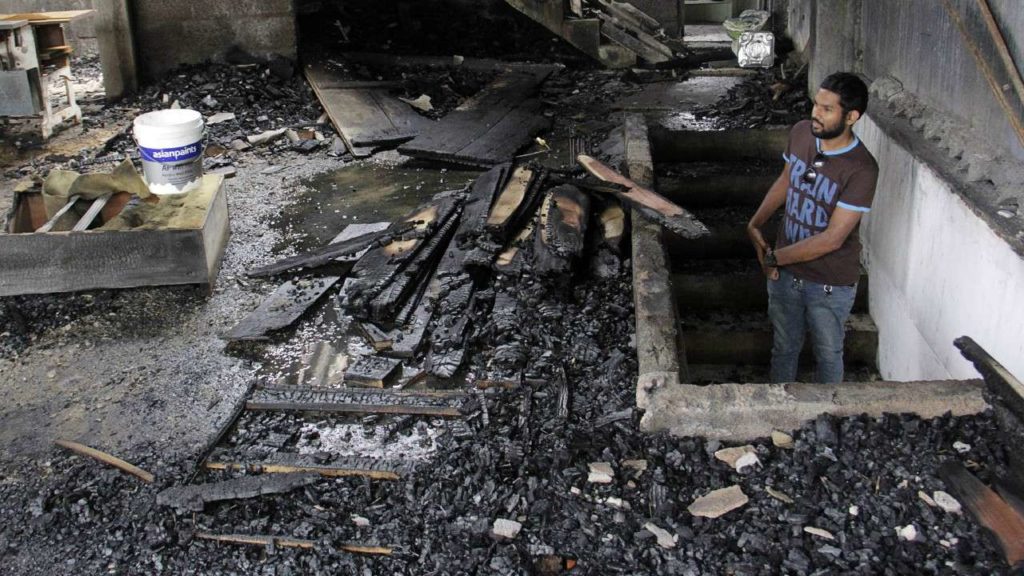Image courtesy DNA India
Madness against Muslims
The shameful acts of violence against the Muslim community in the Kandyan hills, were possible because the violence unleashed against the Muslim community in Ampara and Aluthgama and several other places had been tolerated for too long. If not, the aftermath of the senseless killing of a Sinhala man by some Muslims at Teldeniya, would not have gone so far.
The freedom to harm
Unacceptable as these and any acts of violence are, this tragic narrative is not about violence only. It is about violence that thrives on impunity.
To date, apart from the ritual of arrests, some prosecutions and bail, there have been no convictions. Those responsible for the calculated harm against equal citizens of this country and the incitement of religious hatred remain protected. They walk the streets, free to spread fear and intimidation and ridicule the rule of law, yet again.
Deliberately or not, this freedom has wrenched the current attention of the nation away from regime failure to address some of the most serious and shocking allegations of corruption and the abuse of power the country has experienced.
Trapped under the rule of law
After a worrying pause, the people’s representatives made their face saving messages calling for restraint. Everyone; the perpetrators of violence, the victims, the law enforcement authorities, the silent middle majority; we all know, that these inevitable calls for community restraint come from those who restrain the law from taking its course. This is the reality trap we have lived in for decades.
The rule of law compromised in Colombo, Kandy or Jaffna amounts to the rule of law compromised in all corners of the Island. It’s like the polluted air we breathe. It defies boundaries to descend on the hills and the plains, the guilty and innocent, perpetrators of violence and victims alike.
The thirst for credible governance
Impunity will only be regulated when those who confuse their sacred obligation to ensure the rule of law with an imagined right to meddle with the law, step back to allow the law to take its course. There are still persons in the brown uniform with adequate competence and nerve to steer this process with impartiality.
It is when the people sense this long overdue shift in their faltering representatives, that the call to community restraint will make sense. Civil governance bears good fruit when there are signs that the servants of the people are talking to themselves and among themselves about themselves.
Mindful introspection in representatives and people has immense potential to create a ground swell for the long overdue apology to the Muslims for the unaddressed humiliation and harm they have had to endure.
Drinking from our own wells
Civil governance alone cannot transform societies. There is a duty the people owe each other to make this happen. The stirring story of the lone Buddhist monk and dayakaya, who reportedly spent the nights in a mosque, is a profound home grown lesson in reconciliation. The responsibility to protect ones neighbours place of worship is in effect an endorsement of the right of ones neighbour to worship.
In times of communal violence, sensible governments and courageous neighbours are to stand with the helpless and harassed. It is then that victims will come to experience the warmth of human security; and perpetrators checked and corrected through the sheer moral force of contrast human narratives.
These changes will not come easily. The current culture of sectarian violence, impunity and complicity will continue to raise its head. Even a life time may not be enough to transform the lack of moral courage; and racist tendencies die slowly. But there is no other way to regain and celebrate our common humanity.
There is no other way to turn swords into bridges.
With Peace and Blessings to all!
